Targeting cloud providers, Vexata has separated its software and hardware, to offering file and block access software on commodity servers.
in October 2017 Vexata introduced a 7 million IOPS storage system, the VX-100, with specialised controller and SSD drive module hardware and software. The system provides high-performance and the ability to scale performance and capacity separately.
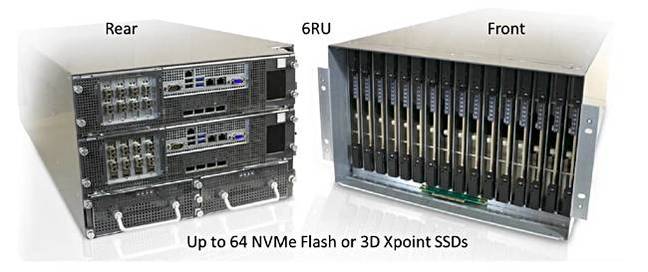
A diagram shows the basic design and illustrates the switched and lossless fabric connecting the FPGA-accelerated controllers and drive modules; the ESMs (Enterprise Storage Modules.)
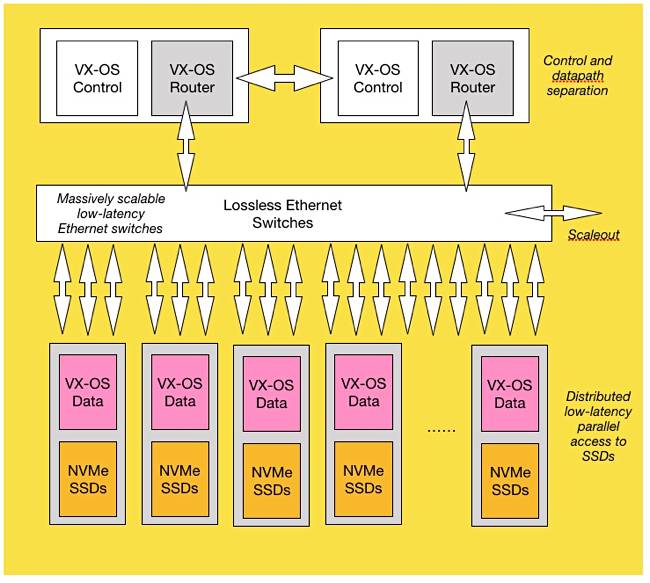
Vexata’s controller software was split into control and data planes and the overall design featured parallel access to the NVMe SSDs. The ESMS are intelligent and run VX-OS Data code for SSD I/O scheduling and metadata management.
The VX-100 recorded a good SPC-2 benchmark in September 2018, with high-performance and low cost:
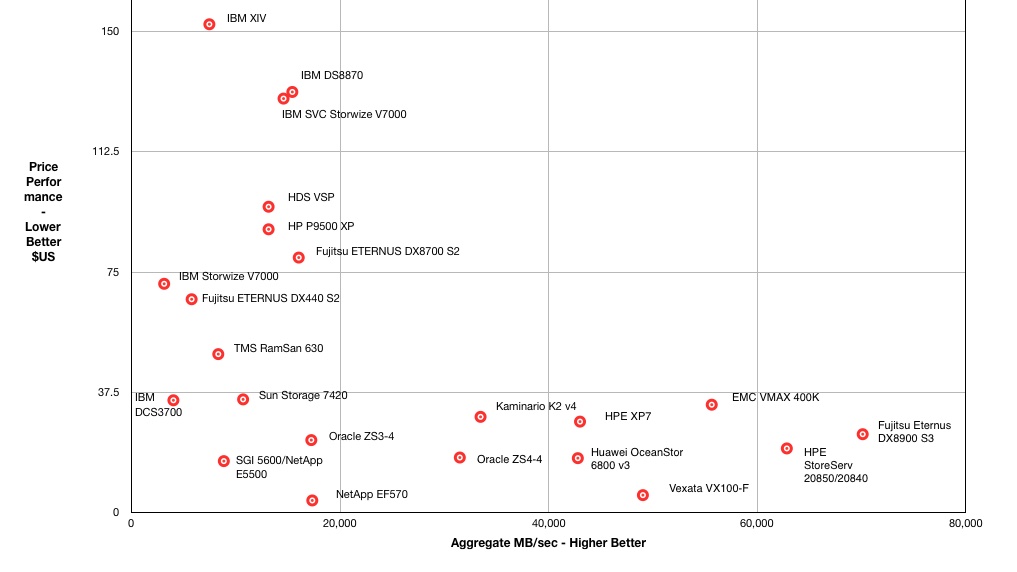
VX-Cloud Data Acceleration Platform
Vexata new offering is called the VX-Cloud Data Acceleration Platform. In effect the VX-100 front-end IO controllers (IOCs) are now commodity X86 servers, still with FPGAs, and the intelligence of the back-end ESMs is aggregated into another X86 server with a chassis full of the NVMe SSDs.
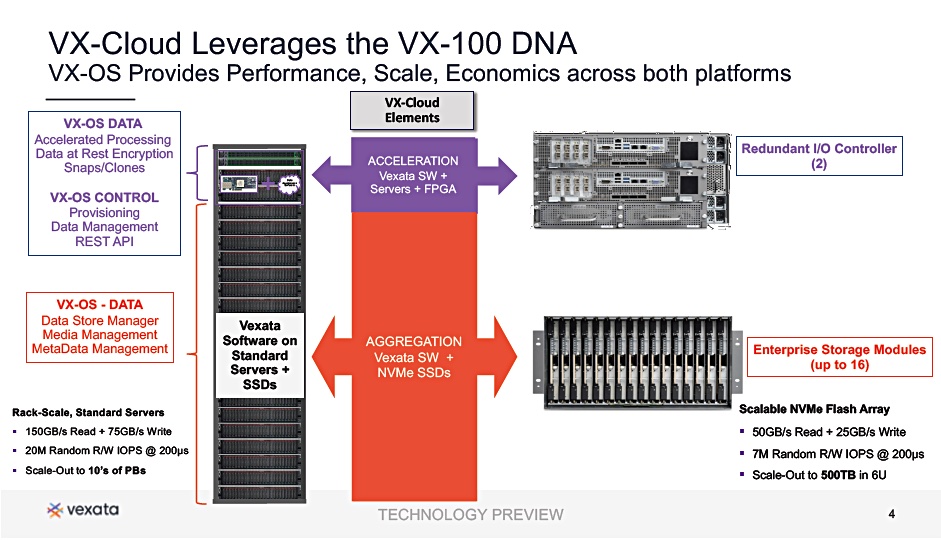
Rick Walsworth, Vexata product marketing executive, told Blocks & Files: “For the VX-Cloud solution, the ESM hardware is replaced by the Data Store Nodes (x86 servers loaded with NVMe SSDs) where the VX-OS code has been modified to run on the open platform nodes and the IOCs are replaced by Data Acceleration nodes (x86 servers with FPGAs) running VX-OS code in both the X86 CPU (control path) and FPGA (data path.”
Vexata says the design uses x86 servers that can scale within or across racks to deliver cloud-scale block and file data services for high-performance transactional databases, decision support systems, advanced analytics, high performance computing, machine learning and artificial intelligence workloads. Twenty million IOPS has been put forward as a performance marker.
The company says VX-Cloud use cases include risk analytics, trading system analytics, financial modeling, cyber-security, IoT analytics, autonomous AI, and deep learning. VX-Cloud works with database, analytics and AI platforms such as Oracle RAC, SQL Server, Postgres, SAS, Kdb+, Cassandra and TensorFlow.
Reference architectures
VX-Cloud has three main elements: Acceleration (front-end controllers), Distribution and Aggregation (back-end SSD controllers).
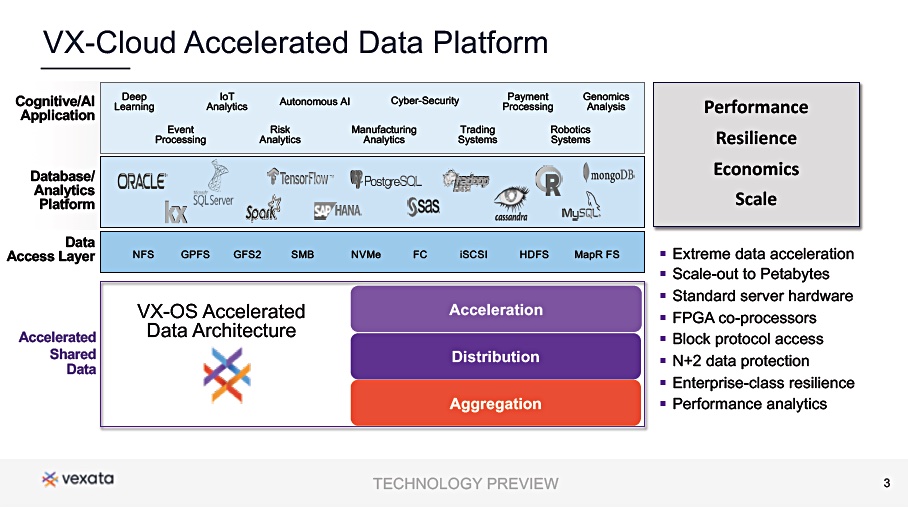
The system provides multi-parity data protection, high availability failover, encryption, volume management, thin provisioning, snapshots and clones, in-line data reduction, REST APIs, and granular I/O monitoring and analytics. It provides block and a raft of file interfaces.
Vexata is working with Fujitsu and Supermicro to craft reference architecture systems using FPGA-accelerated servers as the controller base. It claims VX-Cloud achieves up to 20X improvements in IOPS and bandwidth at consistent low-latency (think 200μs) for random, mixed read/write traffic, at meaningfully lower $/GB acquisition costs compared to premium SSD tiers available from public cloud providers today.
VX-Cloud will be delivered through strategic partners in the first instance, and general availability is expected after June. So we should see VX-Cloud shippable on Fujitsu Primergy and Supermicro BigTwin servers in the USA later this year.







